Experiencing Jerusalem Through its Own Eyes
A tale of our Communication Associate’s experience in the ancient city.
If you were to walk through the Leichtag Foundation office, you’d see a hallway of portraits of people reflecting on their lives in Jerusalem, with words explicating their experiences as “Jerusalemites” – residents of Jerusalem. By our front door is a painting of David Ben-Gurion overlaid with a Hebrew poem. It’s a historical document, created by the late Michel Schwartz, commissioned by the State of Israel and signed by country leaders in the 1990s. All our doorframes have mezuzahs.
It’s no secret that we’re a Jewish organization, but I paint this picture of our office to reflect our commitment to Jewish values. Many of these values guide our work in both North County and Jerusalem.
“The crown of a good name is superior to all,” from Pirkei Avot, a value we express through honoring the work of Lee, Toni and Joli Ann Leichtag z”l, as well as carrying this document honoring Ben-Gurion.
I’m called to Rabbi Hillel’s teaching, “If I am not for myself, who will be for me?,” which we express through our geographical work as citizens of San Diego County and as a Jewish-based organization.
The Foundation holds a lot of love for the city of Jerusalem, which is experiencing a renaissance of social, economic and cultural resiliency. Despite still being the poorest city in Israel and though its history has been culturally divisive, grassroots changemakers and agitators are paving a path to competency, tolerance and – I dare to say – prosperity.
I’ve never seen Jerusalem through this lens before, my education on it being dated and distant. I’ve always recognized its holy significance but lacked understanding of its relevancy to today.
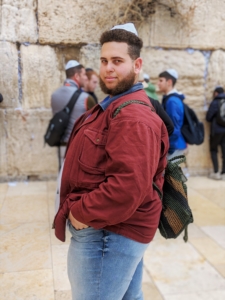
Our Communications Associate Jordan Daniels at the Western Wall
After embarking on Birthright at the end of 2018, I was encouraged to extend my trip and stay in Jerusalem to experience the city through the lens of Leichtag Foundation’s work. I met with activist and changemaker members of the Jerusalem Model, a Foundation-sponsored network that advances the city’s civil society, to understand their view of the city, get to know the organizations that they lead, and see their work’s impact first-hand.
Reflecting on spending 10-days living an Israeli experience, I desired to understand the “Jerusalemite.” It’s an identity that’s continually talked about at work, particularly from Executive Vice President Charlene Seidle. I’ve come to grasp it as an identity unique yet ubiquitous to the city. Beyond Israeli, beyond Jewish, being Haredi, beyond Arab and many other identities, many people in the city lead with their identity of “Jerusalemite.”
But what exactly does it mean to be a Jerusalemite?
After meeting with many residents I’ve come to understand that the definition is fluid. It means something to everyone, but they all expressed this shared idea of working toward a stronger shared civil society; the advancement of Jerusalem and all its people.
To some, prioritizing a Jerusalemite identity means providing support in Arabic for the Arab population in the municipality, like the work that Jerusalem Intercultural Center has helped secure. To others it means having resources for ex-Haredi community members who want to integrate into Israeli society without forsaking their Ultra-Orthodoxy and leaving the community behind, which Out for Change supplies.
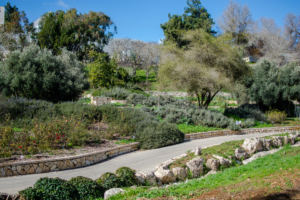
A view from the Jerusalem Botanic Gardens
It could also mean establishing programs for senior citizens or those with mental illness, who are no longer working, to practice horticulture together and establish meaningful connections in later stages of life. The Jerusalem Botanical Gardens has an array of activities for different communities in the city.
Maybe it means giving opportunities for youth to work in agriculture, carving out an alternative route to success through inter-generational farming and learning about taking care of the earth. When youth don’t feel that traditional schooling will help them thrive, they can find employment and education at Kaima Farm, gaining experiential knowledge about agriculture while also being paid a living wage.
What about the tech community? With an ever-growing population of tech professionals and being regarded as an emerging hub, Jerusalem is positioning itself as a tech capital. Made in JLM has helped foster that community by finding and organizing meetups for professionals, creating job boards and sponsoring collaborative opportunities.
To be a Jerusalemite is to be for Jerusalem, no matter who lives there, what they do or where they live. It transcends identity and breaches into ideology, one that believes in equity, sharing power and the growth of the city.
It was a word I knew nothing about going into Jerusalem and it was a word I came out experiencing first hand. There’s still much to learn about what it means to people, but I’m looking forward to discovering more throughout my time at Leichtag Foundation.
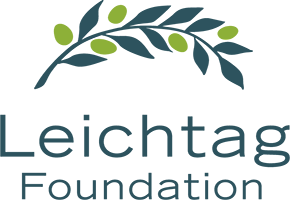




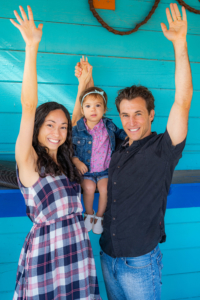
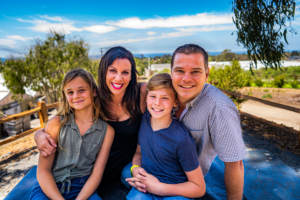
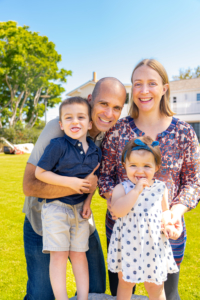 Stacie and Jeff Cook understand commitment. They live it.
Stacie and Jeff Cook understand commitment. They live it.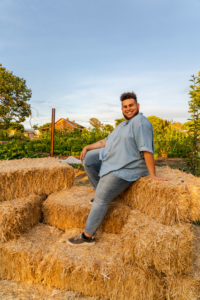 Black, Jewish and Queer. These three identities weave the fabric of who I am, but it took a long time to believe that they could exist together.
Black, Jewish and Queer. These three identities weave the fabric of who I am, but it took a long time to believe that they could exist together.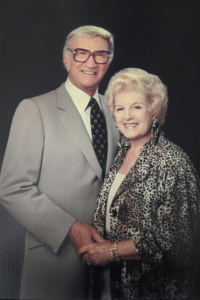 Lee and Toni Leichtag established the Leichtag Foundation in 1991 following the sale of their business. Lee and Toni were lifelong entrepreneurs with a passion for innovation and for supporting talent. They believed that only with big risk comes big reward. Both born to families in poverty, Toni to a single mother, they strongly believed in helping those most in need and most vulnerable in our community. While they supported many causes, their strongest support was for young children and the elderly, two demographics who particularly lack voice in our society.
Lee and Toni Leichtag established the Leichtag Foundation in 1991 following the sale of their business. Lee and Toni were lifelong entrepreneurs with a passion for innovation and for supporting talent. They believed that only with big risk comes big reward. Both born to families in poverty, Toni to a single mother, they strongly believed in helping those most in need and most vulnerable in our community. While they supported many causes, their strongest support was for young children and the elderly, two demographics who particularly lack voice in our society.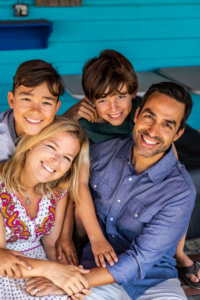 Lifelong Baltimoreans, Rabbi George and Alison Wielechowski and their sons, 11-year-old Lennon and 9-year-old Gideon, are more than pursuing the good life in Southern California. Having moved to San Diego more than three years ago, they are fulfilling a lifelong dream.
Lifelong Baltimoreans, Rabbi George and Alison Wielechowski and their sons, 11-year-old Lennon and 9-year-old Gideon, are more than pursuing the good life in Southern California. Having moved to San Diego more than three years ago, they are fulfilling a lifelong dream.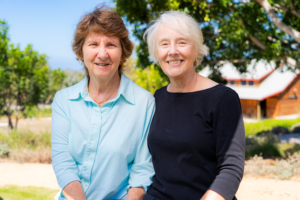

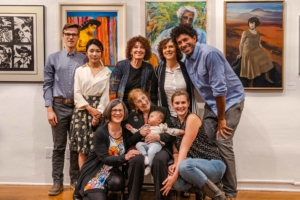
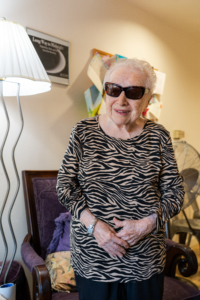
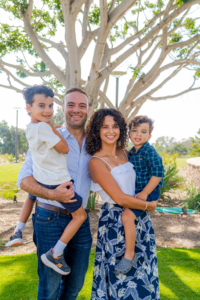
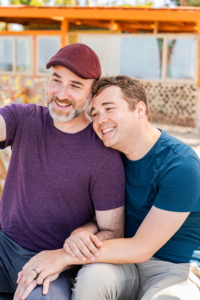
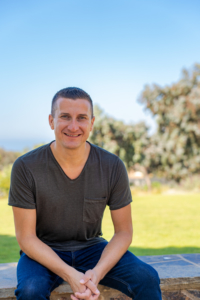 You would think that as the executive director of San Diego LGBT Pride, Fernando Zweifach López Jr., who uses the pronoun they, has done all the coming out they possibly can. A queer, non-binary individual who has worked for many years on civil rights issues, López also speaks openly and often about their father’s family, Mexican-American migrant workers who tilled the fields of rural California.
You would think that as the executive director of San Diego LGBT Pride, Fernando Zweifach López Jr., who uses the pronoun they, has done all the coming out they possibly can. A queer, non-binary individual who has worked for many years on civil rights issues, López also speaks openly and often about their father’s family, Mexican-American migrant workers who tilled the fields of rural California.